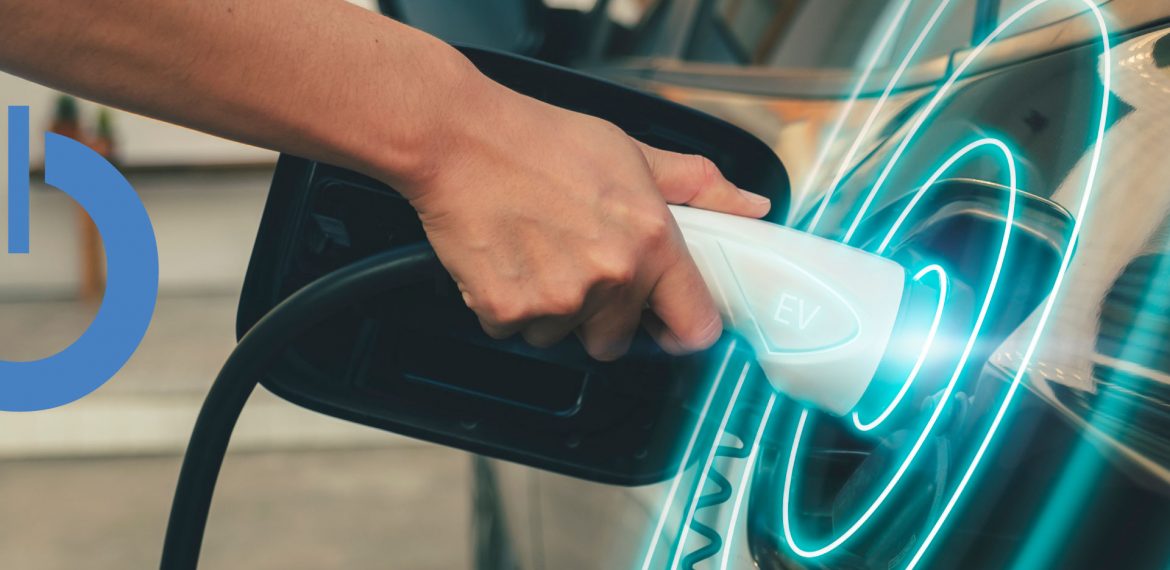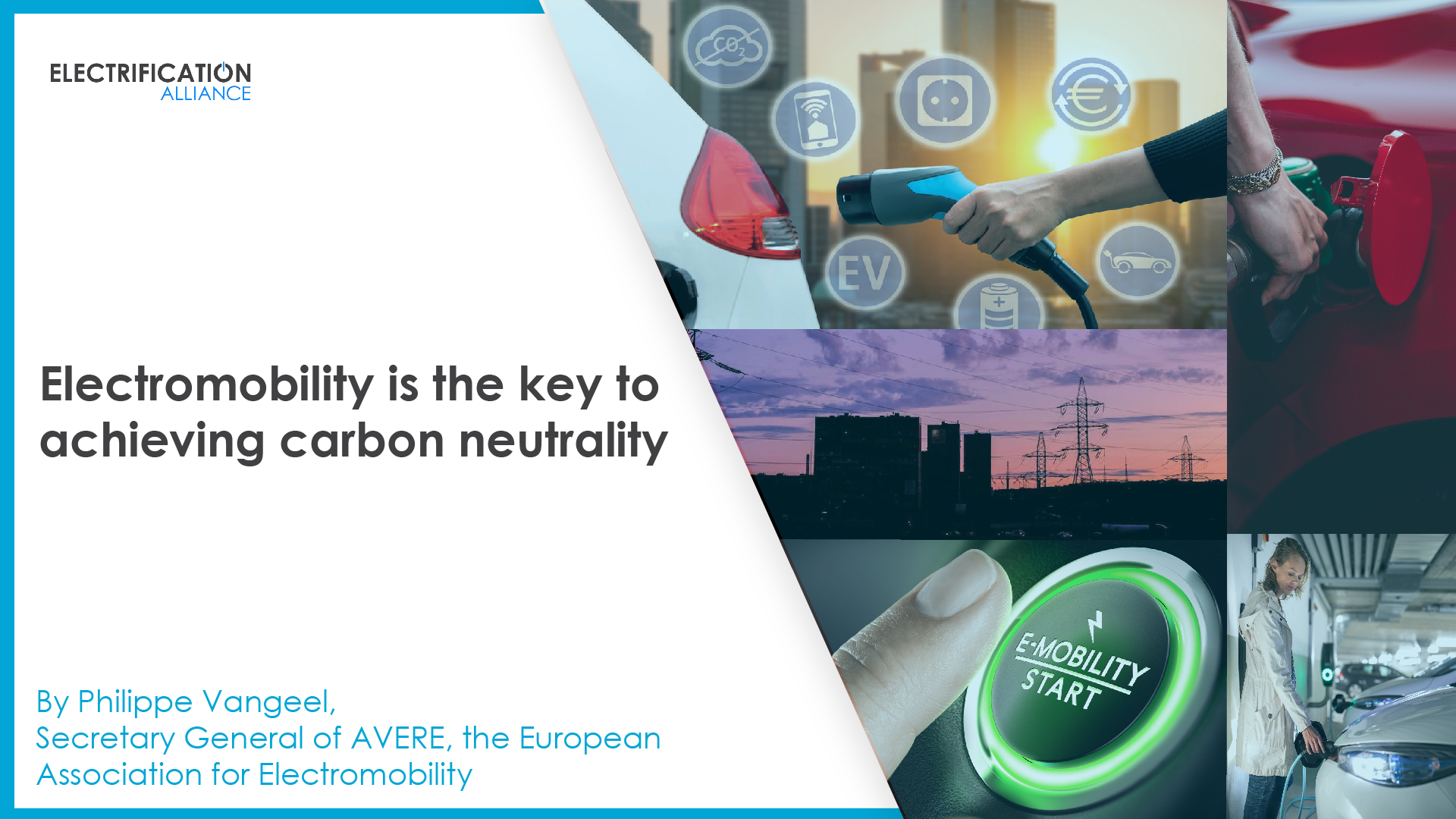
Electromobility is the key to achieving carbon neutrality
Electromobility is the key to achieving carbon neutrality

By Philippe Vangeel, Secretary General of AVERE, the European Association for Electromobility
Electrifying the transport sector is vital to delivering the Commission’s target of a 55% reduction in carbon emissions by 2030, because transport accounts for one quarter of all EU emissions. In fact, our ambition should be to enable 100% new zero-emissions vehicles on European roads by 2030 in order to enable a fully decarbonised European road transport by 2050, hence making Europe a world leader in electromobility.
The upcoming mass uptake of electric vehicles has the potential to not only deliver the Green Deal’s decarbonisation targets, but also to create high skilled jobs and increase the competitiveness of the European economy – especially if it is supported by the right policies at European level.
While the “Fit for 55” package proposes some concrete steps, like the reconfiguration of the Alternative Fuels Infrastructure Directive into a regulation, AVERE will keep advocating for further improvements that could boost progress towards carbon neutrality.
Let’s start with the proposed phase-out of the internal combustion engine to help increase the uptake of zero-emission mobility. We need to significantly raise our ambitions here and bring the current 2035 date forward to 2030. New cars sold today will, in many cases, stay on the roads for 15 or more years, so this trajectory will be crucial for the full decarbonisation of road transport by 2050.
We should also introduce additional intermediate reduction targets to ensure a smooth trajectory throughout the 2020s. Allowing manufacturers to delay fleet decarbonisation until the last minute will stall progress and lead to further emissions that could have been avoided. Furthermore, rather than maintaining incentives for hybrid and other so-called ‘low-emission’ vehicles up to 2030, we should be focusing on the fully decarbonised technologies that are already available today and scaling up electromobility. Lastly, the upcoming proposal for truck CO2 standards in 2022 needs to match the ambition for cars and vans, proposing a phase-out of all non-zero-emissions trucks on a timeline compatible with climate neutrality by 2050.
Hand in hand with the growth in electric vehicles goes the need to establish a harmonised, high quality, dense charging infrastructure network. It needs to be more consumer-friendly, seamless, interoperable, and suitable for heavy-duty vehicles.
The new Alternative Fuels Infrastructure Regulation features binding targets for the roll-out of charging infrastructure, including for heavy-duty vehicles, with the goal of adequately supporting the e-mobility market’s continued growth. It will now be crucial to enable the required rollout by charging operators, for example by addressing administrative hurdles at the national level.
Getting citizens on board is key to success. People need to be well informed and have a positive user experience with charging stations. To enable them to charge conveniently at home, the revision of the Energy Performance of Buildings Directive should deliver significant revision of the requirements for pre-cabling and charging points in both new and existing buildings, making the “right to plug” a reality.
To fully reap the benefits of electromobility, legislation needs to support the rapid uptake of renewable energy. The Renewable Energy Directive revision presents a significant opportunity as we work towards a green, integrated, smart and efficient energy sector. The Commission proposal introduces some promising elements in this regard, such as the obligation for all newly deployed private chargers to be smart-charging capable, and the introduction of national credit trading mechanisms allowing electricity to compete more fairly with biofuels in transport. As sales of electric vehicles take off, Europe’s ability to remain competitive with the rest of the world will depend on the domestic development of batteries on a larger scale.
The 2020 Battery Regulation proposal offers a real step in the right direction here. It should create the legal conditions and incentives for a competitive, innovative, high-quality battery market to emerge in Europe. A secure and controlled end-of-life path will have to be established for all batteries, creating actual business cases for battery end of life management and environmentally sound recycling. And it goes without saying that we strongly support the introduction of rules for the responsible sourcing of raw materials for batteries.
In sum, Europe needs a comprehensive regulatory framework for connected and automated mobility. One that is consistent, holistic and considers the various business models already in place. If we get it right, and electrify transport now, we can stimulate the development and uptake of innovative technologies while also ensuring that the interests of the consumer remain centre stage.
The Electrification Alliance’s event on the morning of November 17 presents the perfect forum to discuss the best policy approaches. Join top-level policymakers, CEOs of leading energy companies in Europe and us and our partners in the Alliance to define the way we can Electrify Now!

